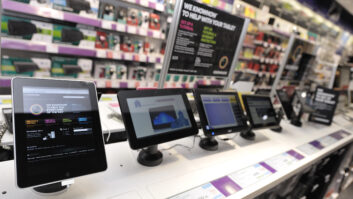It is only a matter of time and success rate before competitors re-engineer the functionality of your new product or service, and bring to the market a newer, shinier and more affordable option.
When that happens your growth stumbles, market share starts to decline, price pressure begins to erode profit margin, and your brand becomes an also-ran instead of a leader.
The same can happen to your customer experience if you don’t pay attention to the market landscape, although that is a much more complicated undertaking to re-engineer. Let me offer a couple examples:
Dyson introduced to the market easy-to-maneuver vacuum cleaners that offered revolutionary design, enhanced functionality (“the appropriate amount of suction”), and an advertising panache that conveyed a premium price message. Its inventor was knighted (Sir James Dyson) and became a celebrity.
However, after a few years of leading its segment of the market and winning patent battles against “wannabe” competitors, Euro-Pro introduced a Shark line of floor care products that performed as well as or better than Dyson, and at a lower price.
As a former customer of Dyson, I cannot recall anything special about the experience of owning their product. The best part of it was the experience of being a Bed, Bath and Beyond customer – which is where I bought my new Shark at the half the price of the Dyson.
Now Hoover and others are also coming to market with comparable products that are forcing Dyson to bring lower-priced models.
A more controversial example involves a “religious” icon – the iPhone. Once a gift of elegance and simplicity, it used to be the gold standard in a product category it arguably created. The committed base of Apple fans, standing in line for days to get their hands on a new model, propelled iPhone consumer expectations for customer experience to previously unseen heights.
While iPhone dominated the market for early adopters of technology, mass market participants failed to see an overwhelming difference in experience between iOS and Android products that would justify the price deferential and high expectations.
The latest flagship model (5S) continues the pattern of disappointment with Apple’s product support, which lags all iPhone features in customer satisfaction, according to research by Amplified Analytics. And while the 5S tops all flagship smartphones with a Net Promoter Score (NPS)* of 53, the HTC One scored higher in terms of reliability (19 percent above average), and the Samsung Galaxy S4 surpassed it in audio experience, design and video quality (scoring 23 percent, 34 percent and 15 percent above average, respectively).
It is not surprising then that iPhone’s market share is shrinking from quarter to quarter. As CNN/Money observed last fall, “The iPhone’s share of the smartphone market peaked at nearly 24 percent in the holiday quarter of 2011, according to research firm Gartner. But Apple’s share dropped to 21 percent the next holiday season, and again to 14 percent last quarter. Android dominates the market with a 79 percent share.”
The loss of market share is not caused by Apple’s failure to bring a quality product to the market. It is caused by Apple’s failure to live up to expectations of customer experience it has created.
As functions and features of products become more commoditized, the holistic customer experience of dealing with your brand becomes the real differentiator in the market place. It cannot easily be infringed upon, reverse engineered, or acquired by competitors. And if you embrace customer centricity as a long-term strategy for your brand management, the customers will embrace your brand as the first and only choice for them.
* NPS, developed by Satmetrix, measures company or product performance based on customer responses to the question “On a scale of 0-10, how likely would you recommend this to a friend or a colleague?”
Gregory Yankelovich is CEO and co-founder of Amplified Analytics, a market intelligence company that uses proprietary algorithms to monitor online consumer feedback and measure the difference between customer expectations and their actual product experience. For more information call (415) 373-2627, visit Amplifiedanalytics.com or email Yankelovich at [email protected].













